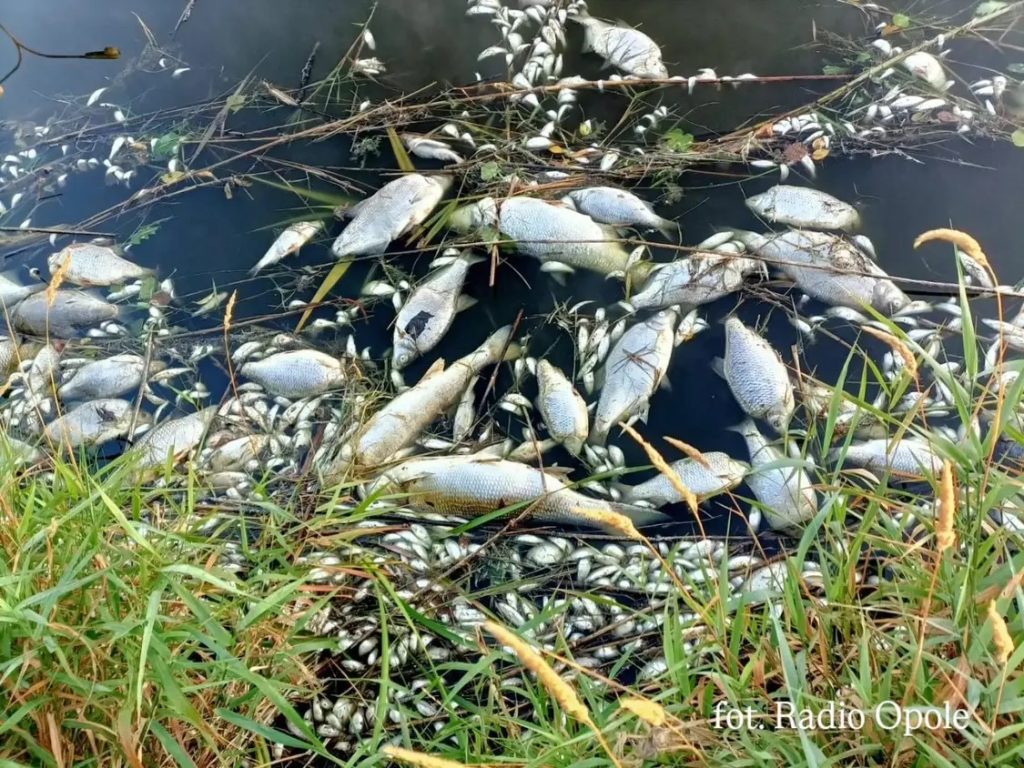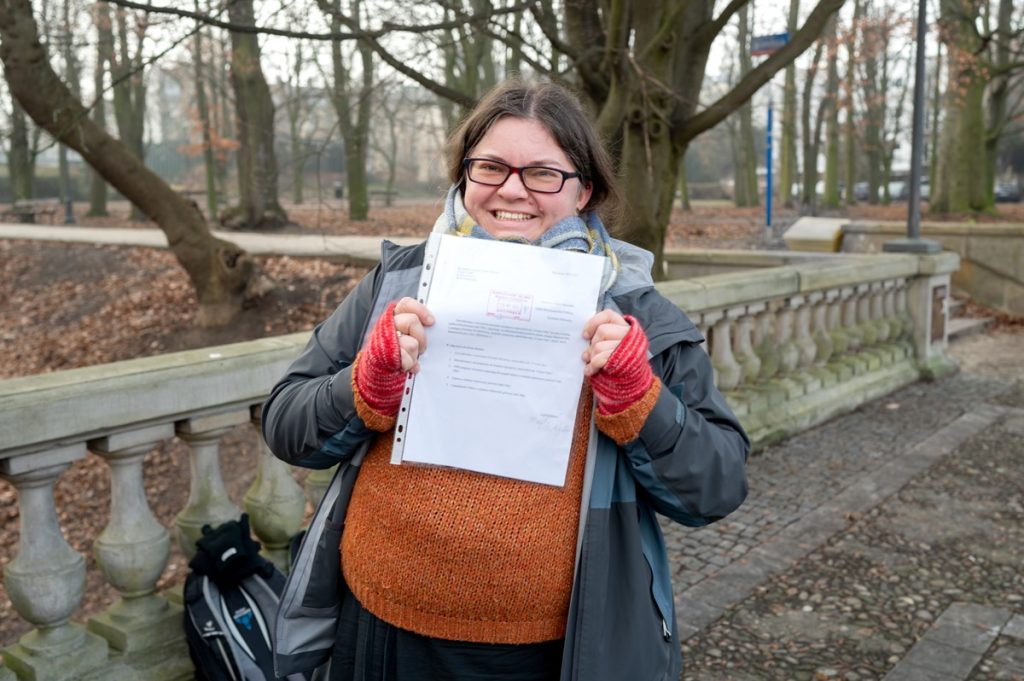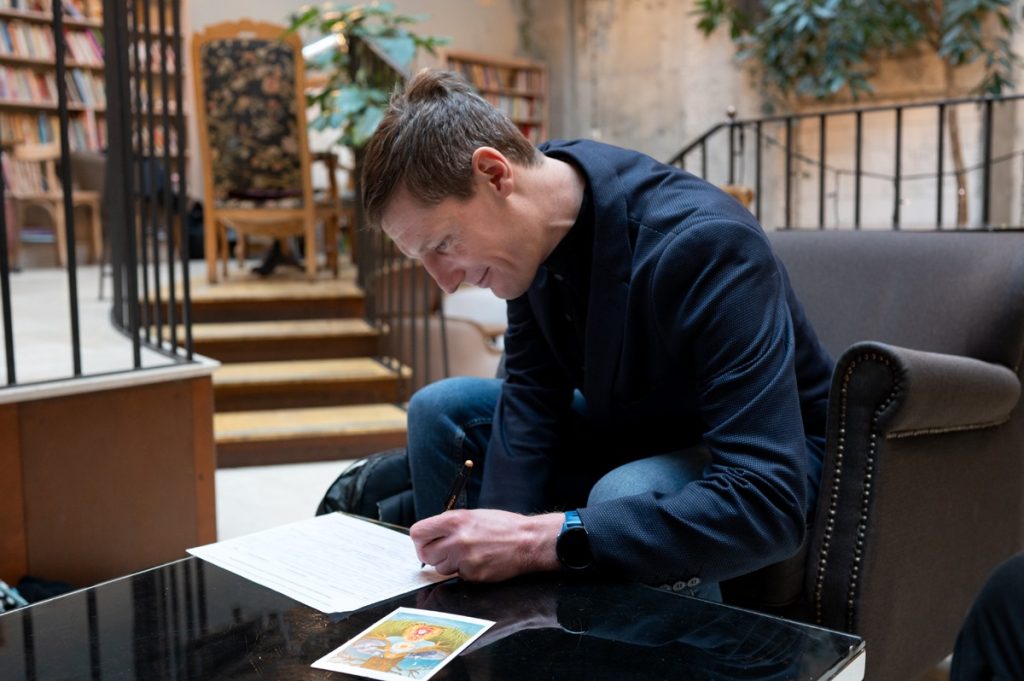Published: May 31, 2025 | 01:30 pm
By: Agata Foksa Biegaj
April 30, 2025, marked a historic moment for river defenders, environmental advocates, and citizens across Poland. It was the final day to submit signatures collected as part of a citizens’ legislative initiative—a constitutional tool that enables at least 100,000 citizens to propose new legislation. This time, the proposed bill aimed to recognize the Odra River as a legal entity, a being with the right to exist, thrive, and regenerate.
Although we fell just short of the formal requirement—with 92,998 valid signatures collected—the campaign has already made history. Thanks to broad public support and unprecedented cross-party engagement, the bill has now been officially submitted to the Polish Parliament (Sejm) by a group of 41 Members of Parliament, representing a spectrum of political affiliations. The Odra River, still gasping for life after the 2022 ecological disaster, is now being spoken for—loudly and clearly—at the very heart of Polish democracy.
A People's Movement for a Living River
- 1,460 people downloaded official authorization to collect signatures.
- 147 collection points were established in bookstores, cafés, NGOs, and universities.
- Signatures were collected at over 230 public events
- 250 scientists signed an open letter supporting the bill.
- 52 public and 5 private universities endorsed the initiative.
- The campaign generated over 300 media mentions, from Fakty TVN and Teleekspres to Wyborcza, Oko.press, and Radio Nowy Świat.
This was more than a signature drive. It was a nationwide awakening—a recognition that our rivers are not infrastructure, but living ecosystems with intrinsic value.

Source: Author.

Source: Author.
From Tragedy to Transformation
The 2022 Odra disaster—Europe’s largest ecological catastrophe in decades—claimed the lives of an estimated 1650 tons of aquatic life, including 65 million mussels, 147 million snails, and up to 122 million fish. It was not an act of nature. It was a policy failure: a combination of industrial negligence, lack of accountability, and regulatory loopholes that continue to this day.
Salt discharges—one of the main culprits—are still legal. In fact, they increased by over 8% in 2023. Fines levied against PGW Wody Polskie (Polish Waters) amounted to PLN 31.8 million, but were later annulled due to institutional confusion and a fractured governance model that splits river oversight between the Ministry of Infrastructure and other bodies. Meanwhile, surface waters in good ecological condition have dropped from 31% to 8.5% in just six years.
In this context, recognizing Odra’s legal personhood is not just symbolic. It’s systemic.
A New Model of Governance: The Odra River Committee
The proposed law doesn’t simply elevate Odra’s status—it reimagines how rivers can be protected and represented. The Odra will be represented by a Committee of 15 people, including:
- 1 representative from the Ministry of Environment,
- 2 from State Water Holding – Polish Waters,
- 3 from local governments,
- 3 representing the river’s most significant users (e.g., tourism, agriculture, local communities),
- 6 from environmental NGOs and the original initiative group.
The Committee will be supported by an Odra Scientific Committee, made up of 10 experts in fields such as biology, hydrology, law, and environmental sciences. This structure ensures that both ecological integrity and community voices are embedded into decision-making—setting a precedent not just for Poland, but for all of Europe.
International Recognition
The movement has already garnered international acclaim. Representatives of the campaign have been invited to speak on Odra’s behalf at the United Nations in New York and at the French National Assembly. The recognition of river rights is no longer fringe. From the Whanganui River in New Zealand to the Atrato River in Colombia, to efforts across Canada, Ecuador, and the U.S., a global legal transformation is underway—one that acknowledges that healthy ecosystems are not resources, but relatives.

Source: Author.
What's Next?
With the support of 41 MPs, the bill has now entered the official parliamentary process. The coming months will involve: first reading in the Sejm, where the bill will be presented and debated, committee review, during which changes and expert opinions may be considered, second and final readings, followed by a vote. If passed, the bill goes to the Senate, and finally to the President for approval. If the President vetoes the bill, the Sejm can override the decision with a 3/5 majority.
Members of the Odra Personhood Foundation and other environmental experts will be actively involved in the legislative process, ensuring that the spirit of the initiative—community-rooted, scientifically sound, and legally robust—remains intact.
The bill is now under official consideration. Public consultations have begun, and the first steps of the legislative process are underway. This is no longer a distant vision. It is happening. And while the road ahead is long, the direction is clear: toward a legal and political system that treats rivers not as property, but as living entities.

Source: Auteur.
A Watershed Moment
The Odra River campaign is not just about one river. It’s about transforming our legal, cultural, and emotional relationship with the natural world. In the face of climate breakdown, mass extinction, and political stagnation, legal rights for Nature offer a radical yet grounded alternative—one rooted in care, science, and justice.
We came close to 100,000 signatures—but in the end, we achieved something even more powerful: we created a movement too strong to ignore. The river is speaking, and the Polish Parliament is listening—cautiously, attentively, and, we hope, with a willingness to embrace this historic step.
About Agata Foksa Biegaj
Agata Foksa-Biegaj is a lawyer specializing in international law and human rights, with experience working for the European Court of Human Rights, Global Rights Compliance, and WWF Japan. Passionate about bridging law, environmental protection, and social justice, she also explores the intersection of spirituality, astrology, and human empowerment. Through her foundation “Better,” Agata integrates legal expertise with a visionary approach to inspire meaningful change.
Contact: afbiegaj@gmail.com; kontakt@osobaodra.pl
